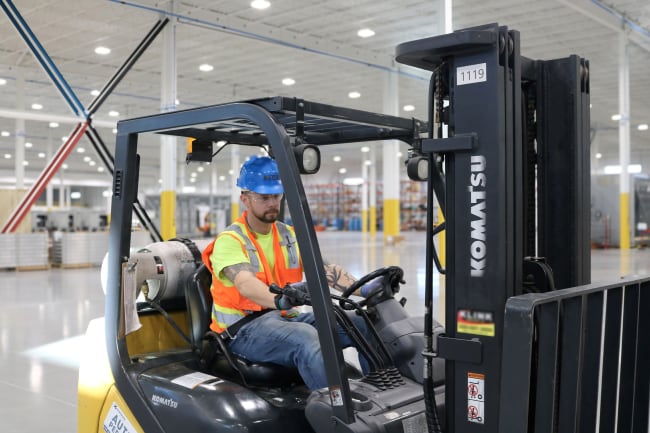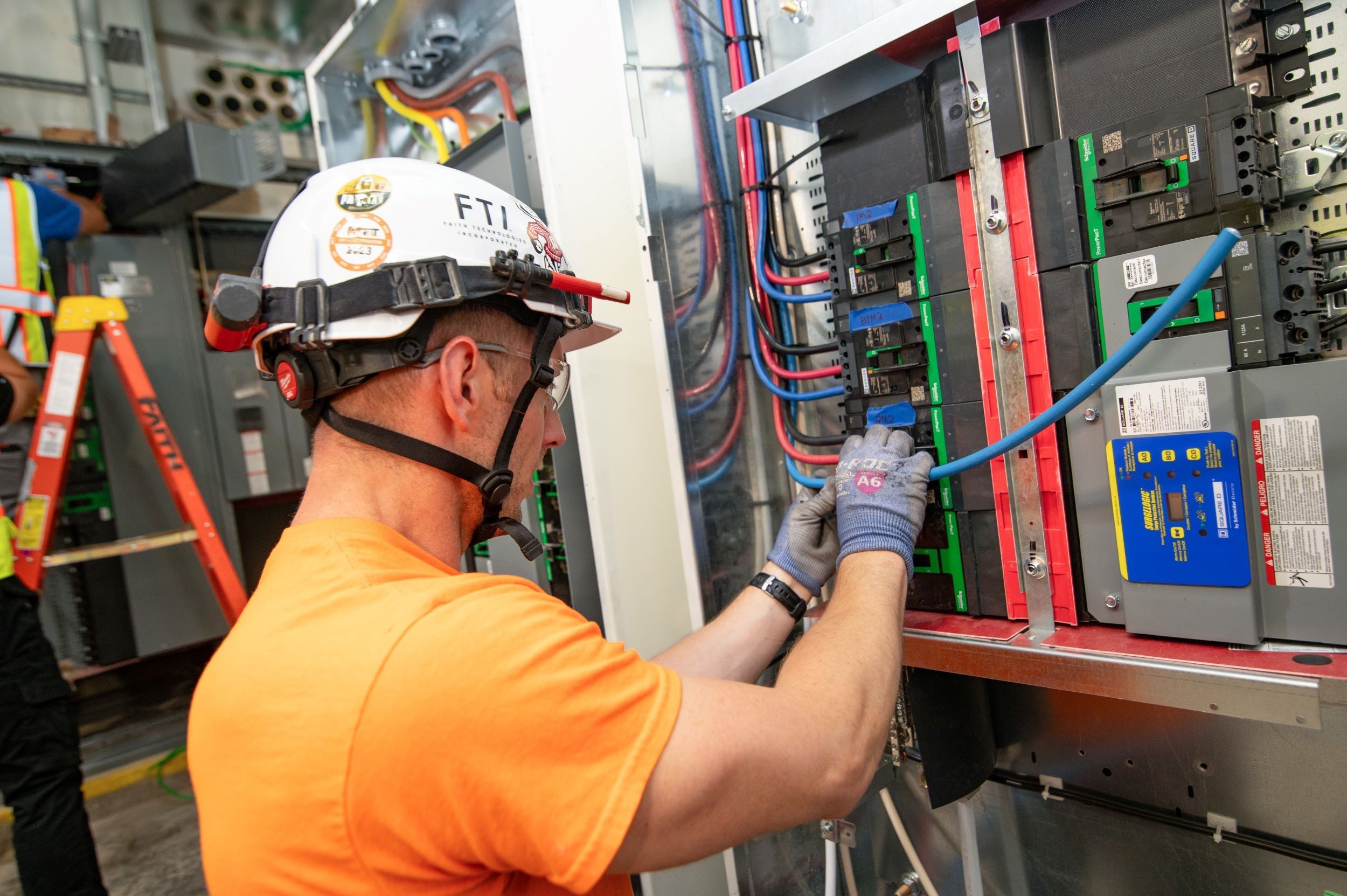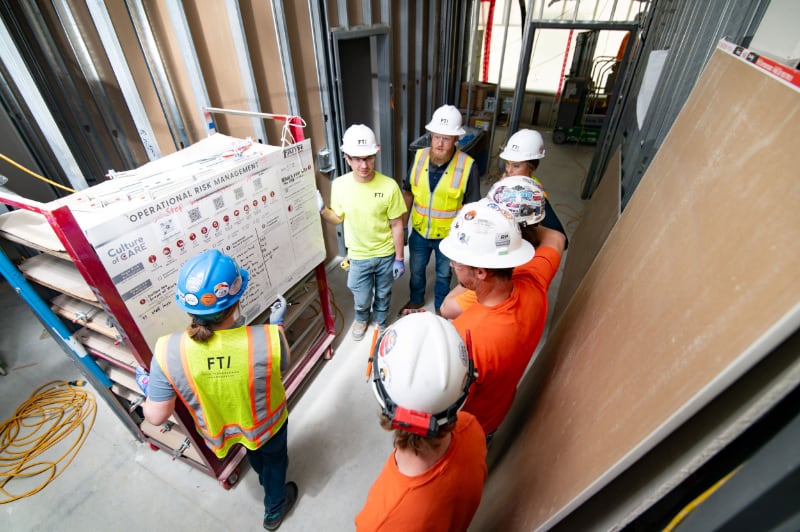
At FTI, we realize that a key to our success is investing in our team members to create true ground-up growth. This includes investing in thorough training for employees while they learn and grow in their careers.
Studies have suggested that employees are more likely to get injured or involved in an accident within their first six months to a year on a job site. At FTI, we realize that creating mentors might require more time and resources up front but saves over time through fewer injuries and more focus on where it is needed, so we created the Short Service Employee (SSE) program. An SSE is a field or manufacturing employee new to the organization, regardless of years of career experience or title. We assign the SSE a mentor once placed on their first job site for their first six months with the company. Our SSEs wear blue hard hats, rather than the white ones worn by other team members, to provide a clear indication that they are new to the organization and still learning our processes.
The mentor plays a critical role in promoting and maintaining a culture of safety within our organization. Their importance cannot be overstated, as they serve as guides, educators and advocates for the safety of the SSE within the program. Some of the functions of the mentor include the following:
- Instills our number one core value: Uncompromised Focus on Keeping People Safe.
- Ensures active participation in the daily Operational Risk Management (ORM) process.
- Understands our organizational near-miss and injury reporting procedures.
- Demonstrates the safe use of tools and equipment.
- Can locate safety data sheets (SDS), first aid equipment and job-specific items.
- Selects correct tools, equipment and PPE for task at hand.
- Identifies and communicates hazards to job site leader and co-workers.
- Maintains a clean work environment, free of housekeeping hazards.
At the end of the six-month program, our SSE team members should feel comfortable with the organization’s processes, where to find resources and overall understanding of our focus on safety. We ask for feedback from the mentor to ensure the SSE is ready to graduate. Some employees might need more time in the program, while others might graduate early.
The importance of a safety mentor cannot be overstated. From providing guidance and support to serving as role models and advocates for safety, they play a crucial role in promoting and maintaining a culture of safety within an organization. By investing in safety mentors, organizations can create safer workplaces, protect their employees and ultimately enhance their overall success.
If you enjoyed this blog article, please subscribe to stay up to date on the latest industry news from our experts at FTI.










